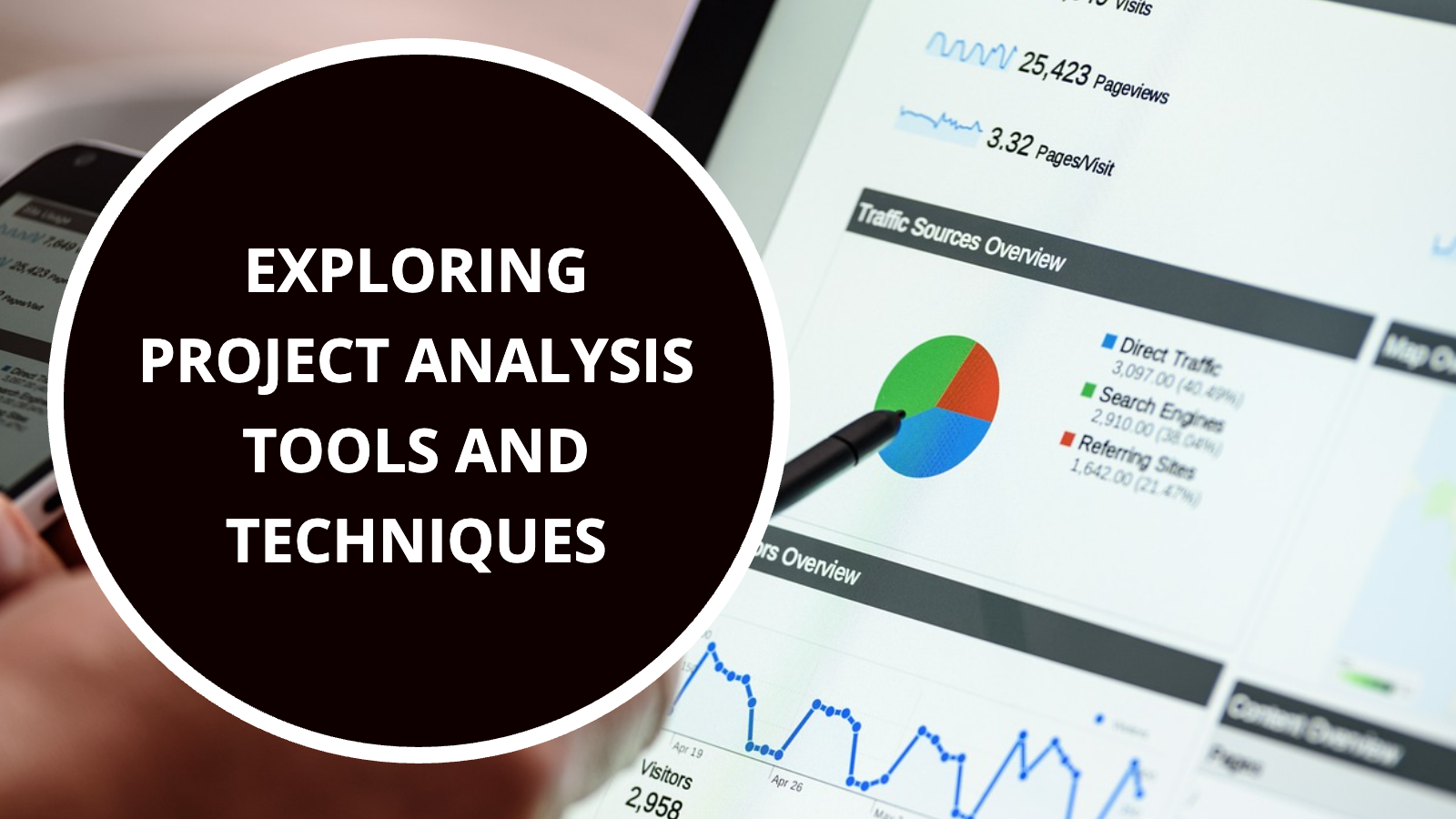Exploring Project Analysis Tools and Techniques
 Ritik Makhija
Ritik MakhijaTable of contents
- 1. Understanding the Basics
- 2. Gantt Charts: The Timekeepers
- 3. SWOT Analysis: The Project Navigator
- 4. Cost-Benefit Analysis: The Financial Advisor
- 5. Risk Assessment: The Fortune Teller
- 6. Critical Path Analysis: The Game Plan
- 7. Earned Value Management: The Progress Tracker
- 8. Pareto Analysis: The 80/20 Rule
- 9. Quality Control Tools: The Perfectionist's Toolkit
- 10. Benchmarking: Learning from the Best
- 11. Conclusion: Your Project's North Star
- FAQs - Your Burning Questions Answered

Are you ready to dive into the world of project analysis tools and techniques? You might be wondering, "What's the fuss all about?" Well, picture this: You're embarking on a grand adventure, and you've got a map, a compass, and a few nifty gadgets to make your journey smoother. In the business world, project analysis tools are your trusty companions, guiding you through the complex landscape of projects. In this article, we'll demystify these tools, using simple language and avoiding jargon, so you can embark on your project with confidence.
1. Understanding the Basics
Let's begin with the fundamentals. Project analysis tools and techniques are the secret sauce to successful project management. They help you plan, monitor, and execute projects with finesse. The beauty lies in their simplicity. They break down complex projects into manageable pieces, like assembling a puzzle. By analyzing and understanding these components, you can make informed decisions and keep your project on track.
2. Gantt Charts: The Timekeepers
Imagine you're a chef in a bustling kitchen, orchestrating multiple dishes. You need a timeline to ensure everything is cooked to perfection. Gantt charts are your kitchen timers in the world of project management. They visually display tasks, dependencies, and deadlines, making it easy to spot bottlenecks and keep the project on schedule.
3. SWOT Analysis: The Project Navigator
To navigate your project's path, you need to understand its strengths, weaknesses, opportunities, and threats. This is where SWOT analysis comes in. It's like your trusty GPS, guiding you through the twists and turns of your project journey. By identifying these factors, you can make informed decisions and plot the best route to success.
4. Cost-Benefit Analysis: The Financial Advisor
Every project involves money, and you need a financial advisor to help you make wise financial decisions. Cost-benefit analysis does just that. It helps you assess the costs and potential benefits of your project. It's like a balance scale, ensuring that your project is financially sound.
5. Risk Assessment: The Fortune Teller
In the world of project management, you can't predict the future, but you can prepare for it. Risk assessment is your crystal ball, allowing you to foresee potential risks and plan for them. By identifying and mitigating risks, you can prevent future disasters and keep your project on track.
6. Critical Path Analysis: The Game Plan
Imagine you're a coach planning a winning strategy. Critical path analysis is your playbook. It identifies the most critical tasks that, if delayed, could jeopardize the entire project. By focusing on these tasks, you ensure that your project stays on the path to victory.
7. Earned Value Management: The Progress Tracker
You need a reliable way to track your project's progress, like a fitness tracker for your project. Earned value management allows you to measure the value of the work completed against the planned value. It's like knowing how many miles you've run in a marathon, keeping you on the right track to the finish line.
8. Pareto Analysis: The 80/20 Rule
The 80/20 rule, also known as Pareto analysis, is your efficiency maximizer. It helps you focus your efforts on the 20% of tasks that yield 80% of the results. Think of it as decluttering your project, ensuring you're investing your time and resources where it matters most.
9. Quality Control Tools: The Perfectionist's Toolkit
Every project strives for perfection, and quality control tools are your toolkit for achieving it. These tools, like checklists and inspections, help you maintain and improve the quality of your project. They are the craftsmen's tools for creating a masterpiece.
10. Benchmarking: Learning from the Best
In any endeavor, it's wise to learn from the best. Benchmarking is your opportunity to study and adopt best practices from industry leaders. It's like watching the pros play to improve your own game. By benchmarking, you can apply proven strategies to your project for success.
11. Conclusion: Your Project's North Star
In conclusion, project analysis tools and techniques are your guiding stars on the journey of project management. They simplify the complex, keep you on track, and help you make informed decisions. Just as a ship relies on its North Star to navigate, your project relies on these tools to reach its destination successfully.
FAQs - Your Burning Questions Answered
What Are the Most Common Project Analysis Tools? Project analysis tools come in various forms, but some of the most common ones include Gantt charts, SWOT analysis, cost-benefit analysis, and critical path analysis.
How Do I Choose the Right Project Analysis Tools for My Project? The choice of tools depends on your project's unique needs. Consider the size, complexity, and goals of your project when selecting the most suitable tools.
Why Is Risk Assessment Important in Project Management? Risk assessment is crucial because it helps you anticipate and mitigate potential issues before they become major roadblocks to your project's success.
Can Project Analysis Tools Improve Project Efficiency? Absolutely! These tools streamline processes, enhance decision-making, and ensure that resources are utilized efficiently, ultimately improving project efficiency.
Is Benchmarking Only Relevant to Large Corporations? No, benchmarking can be beneficial for businesses of all sizes. It allows smaller businesses to learn from the successes and failures of larger organizations, adapting best practices to their own projects.
So there you have it – a comprehensive guide to project analysis tools and techniques. Whether you're a seasoned project manager or just starting your project management journey, these tools are your reliable companions on the path to success. Remember, they're not just for experts; they're for anyone looking to make their project dreams a reality.
Subscribe to my newsletter
Read articles from Ritik Makhija directly inside your inbox. Subscribe to the newsletter, and don't miss out.
Written by

Ritik Makhija
Ritik Makhija
Greetings! I am a skilled full-stack developer who is passionate about utilizing technology to bring innovative solutions to life. My comprehensive skillset includes not only software development but also knowledge of AWS Cloud, Blockchain Development, Figma-based Application Design, and Marketing Strategies. My objective is to use my skills to help businesses and organizations turn their ideas into reality, foster growth, and make a positive impact. I have a proven track record of delivering top-notch software and imaginative solutions. I am eager to tackle new challenges and opportunities within the field.